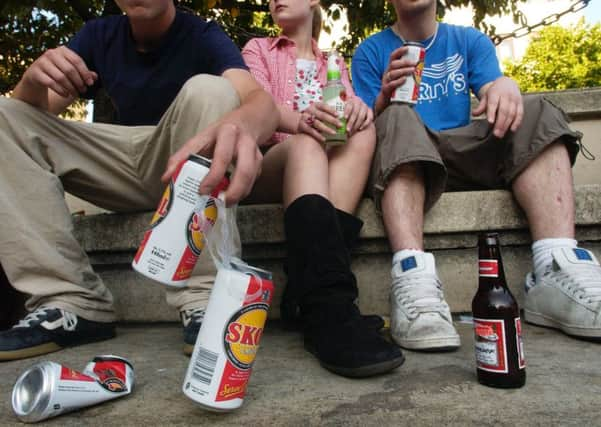It's time to stop teaching kids that drinking alcohol is an everyday affair


The latest survey of secondary school pupils’ substance use shows that around a third of 13 year olds and two thirds of 15 year olds in Scotland have tried alcohol. Most teenagers in Scotland drink infrequently and the number of pupils drinking in the last week has fallen over the past 15 years. But alcohol is still the drug of choice for many teenagers and it’s concerning that there has been an increase in the proportion of 13 year olds who report being drunk in the past week.
There are certain risk factors which make young people more likely to drink, including having older friends, having more money to spend and pressure to “fit in” with what others are doing. Stricter enforcement of licensing laws has made it more difficult for teenagers to purchase alcohol directly from shops; they are now more likely to get alcohol from home, older friends and relatives. As children grow up, their attitude towards alcohol will be influenced by what they see, hear and experience at home. Parents shouldn’t underestimate how much influence they can have. Many think it is a good idea to give their children alcohol to remove the “mystique” and introduce some control about what, where and how much they drink. But it is important for parents to be aware of the potentially very serious harm that alcohol can do to children and young people.
Advertisement
Hide AdAdvertisement
Hide AdOn top of that, we know more and more people are choosing to drink at home. Parents may think that their children don’t notice their drinking – but they do. When talking with a group of parents recently, one father said he was shocked when his young daughter brought him a beer from the fridge as he settled on the sofa to watch the match, because “that’s what you do when you watch football”. A mother told us: “When I put my kids to bed one night they asked me if it was Wine o’clock now. I didn’t think they knew I had a wee drink.”


It’s clear our attitudes and behaviours shape those of our kids. Next month, Alcohol Focus Scotland will launch a website for parents and families called My Family and Alcohol. It will help families to explore if, and how, they are affected by someone’s drinking and provide advice and a directory of support services.
As well as seeing alcohol at home, children are also regularly bombarded with positive messages about alcohol on television, social media, in shops and on our streets. Children as young as ten are highly familiar with alcohol brands and we know exposure to advertising can lead to young people drinking at an earlier age and drinking more. Our #alcoholfreekids campaign has been supported by children’s charities, health groups and MSPs from all parties who agree that children should not have to see alcohol being advertised outside the school gates or when they visit Murrayfield or Hampden Park.
Young people are growing up with the message that drinking is normal, risk-free and fun. That’s not surprising when we have such a high number of outlets selling alcohol at pocket money prices. There are very few spaces which are completely alcohol-free – it seems alcohol is available literally anytime, anywhere. A recent example was a “family friendly rave”, aimed at parents with children under eight, applying for an alcohol licence. And, if there’s one setting which should definitely be alcohol-free it’s school, yet alcohol is served at parents’ evenings and carol concerts. Licensing boards need to think carefully about the potential impact on children when granting licences for such events.
We will be publishing a report soon which makes recommendations to ensure children can go about their daily lives without constantly seeing alcohol brands and messages. Among these will be recommendations to ban advertising in public spaces, and phasing out alcohol sponsorship in sport. The World Health Organisation Europe Declaration on Young People and Alcohol states that all children and adolescents have the right to grow up in an environment protected from the negative consequences of alcohol consumption. It shouldn’t be too much to ask that children in Scotland can play, learn and socialise in places that are healthy and safe, free from exposure to alcohol marketing and harm.
Alison Douglas, Chief Executive, Alcohol Focus Scotland